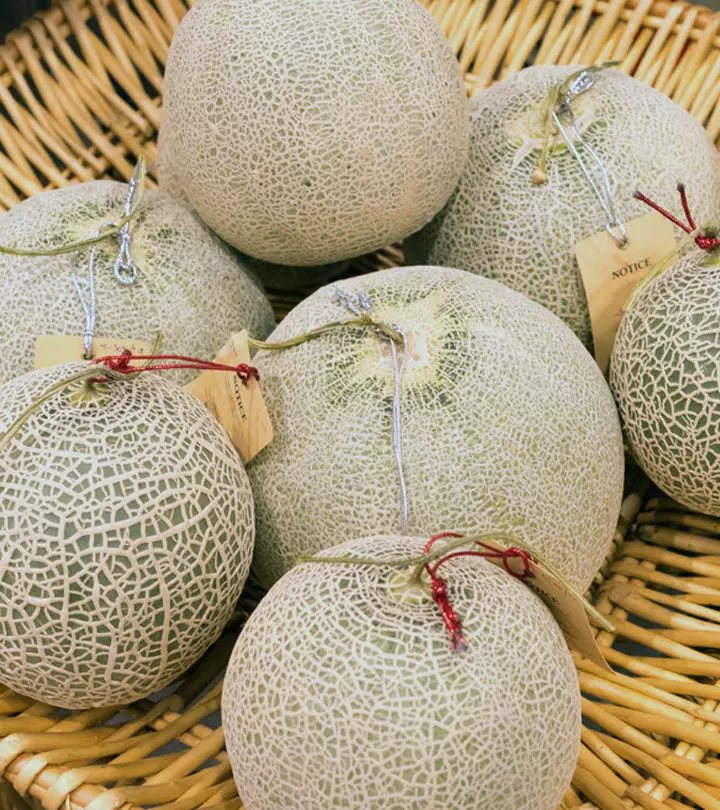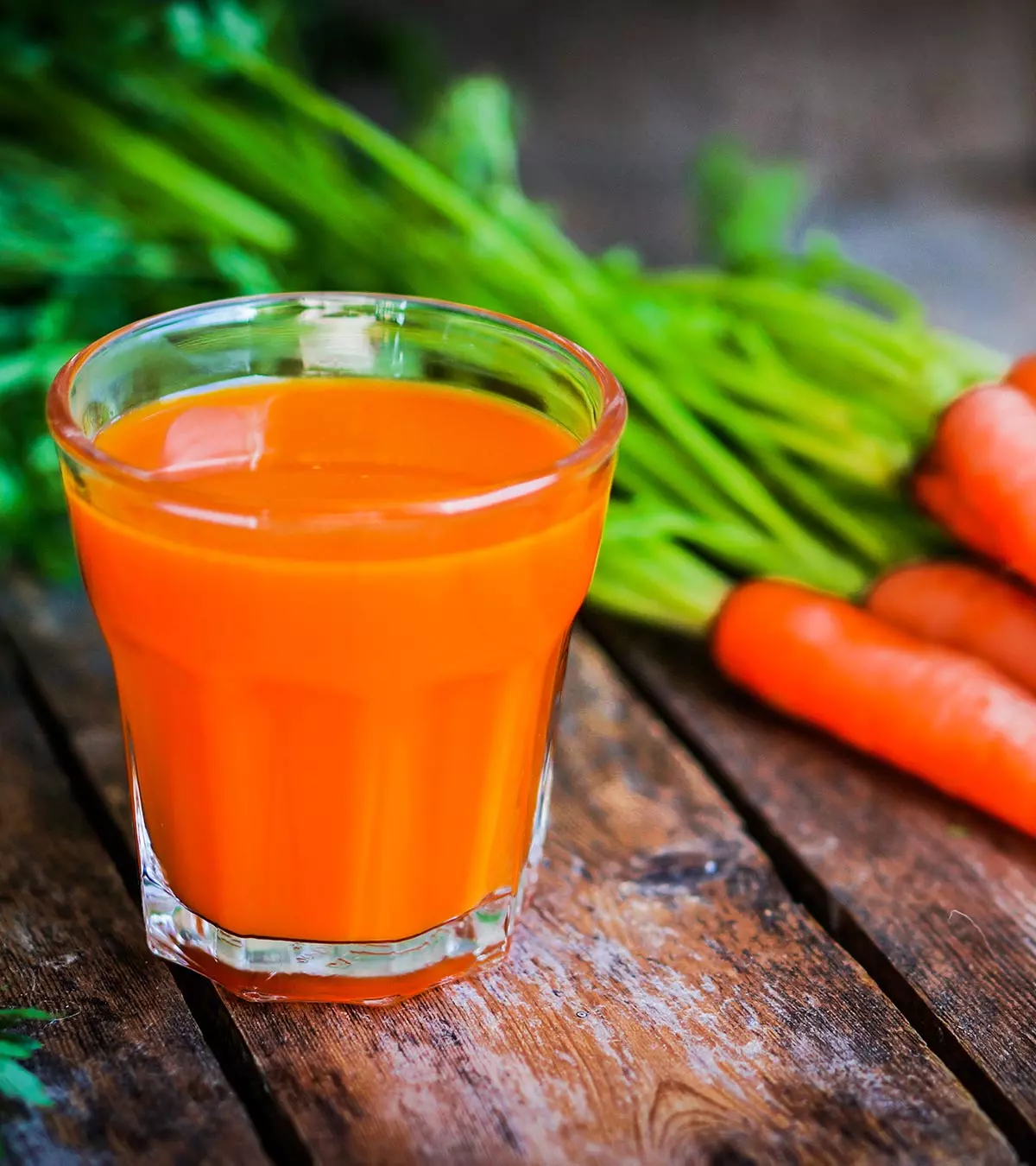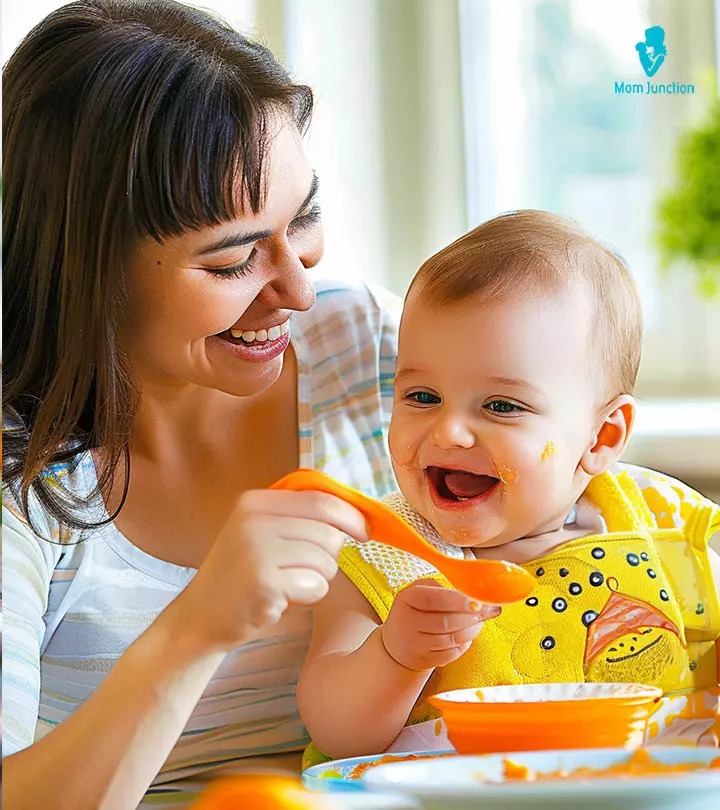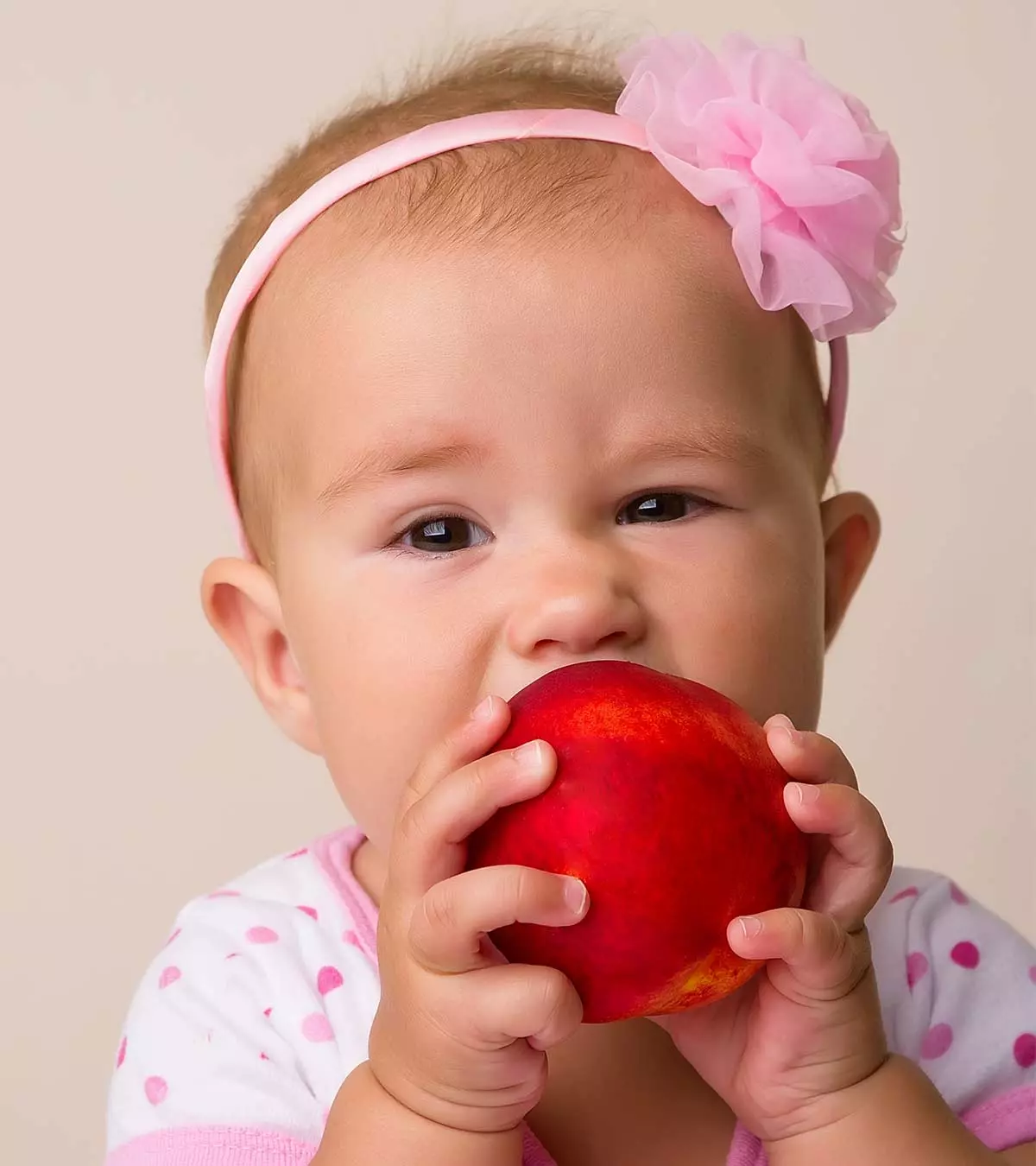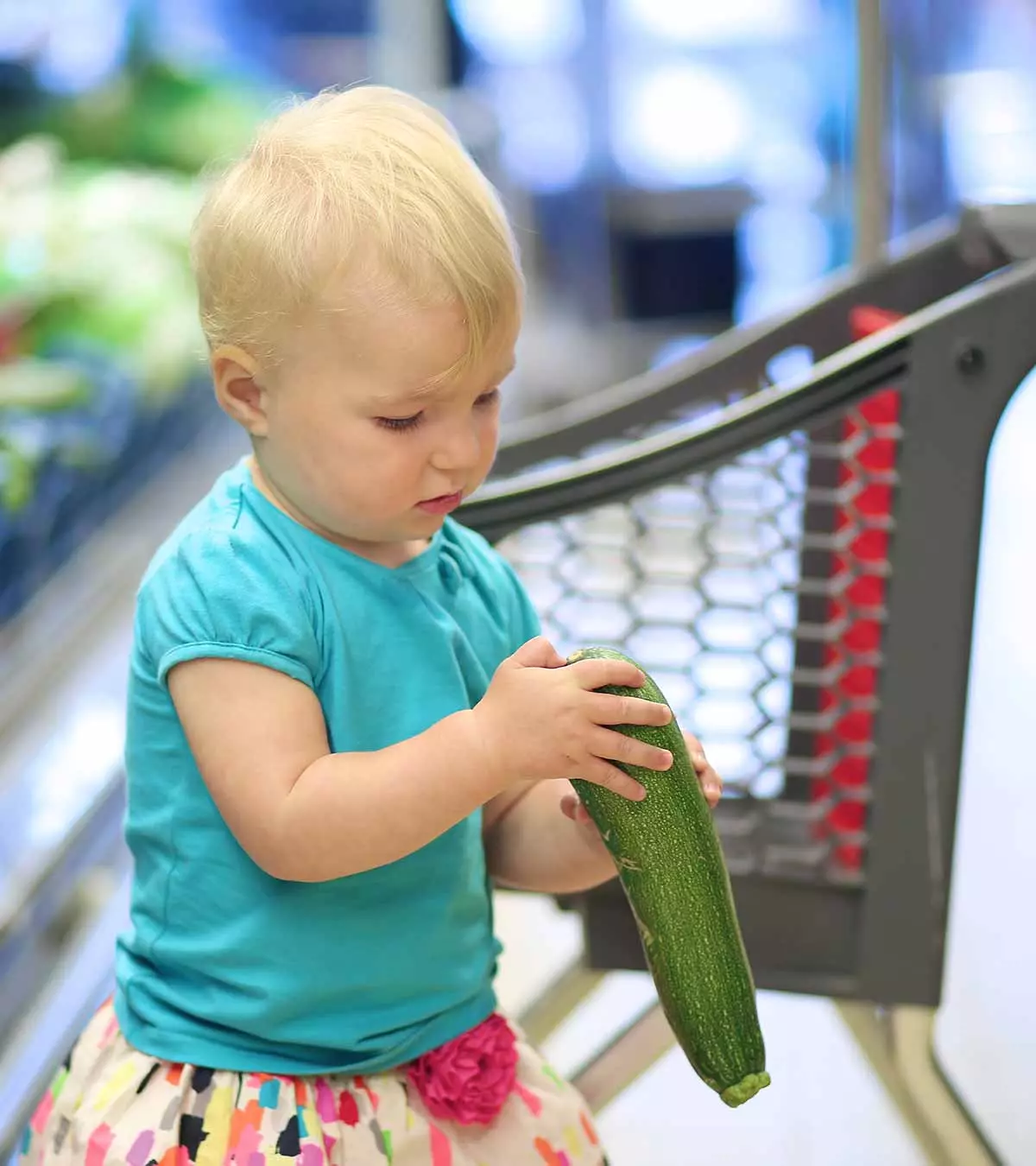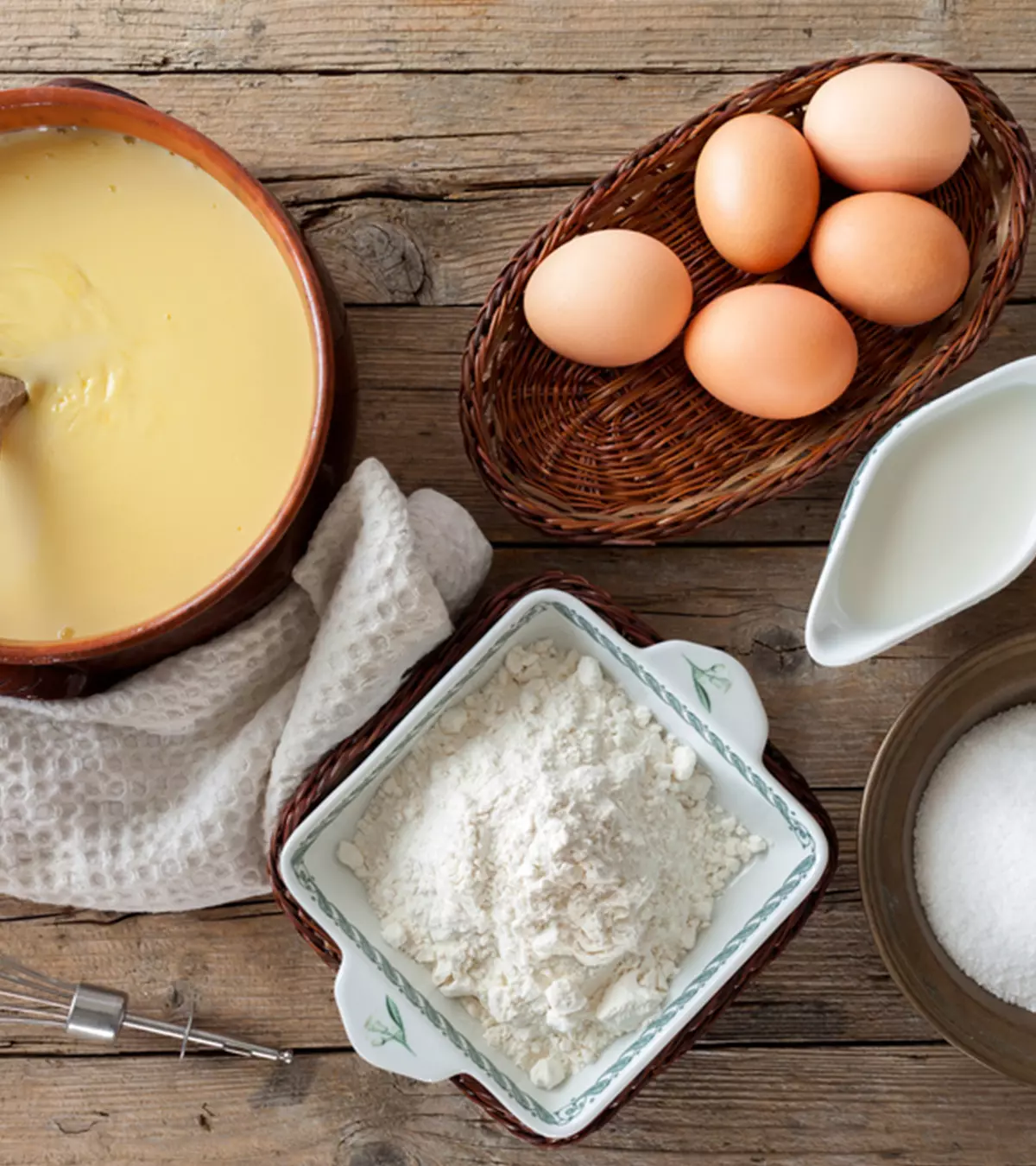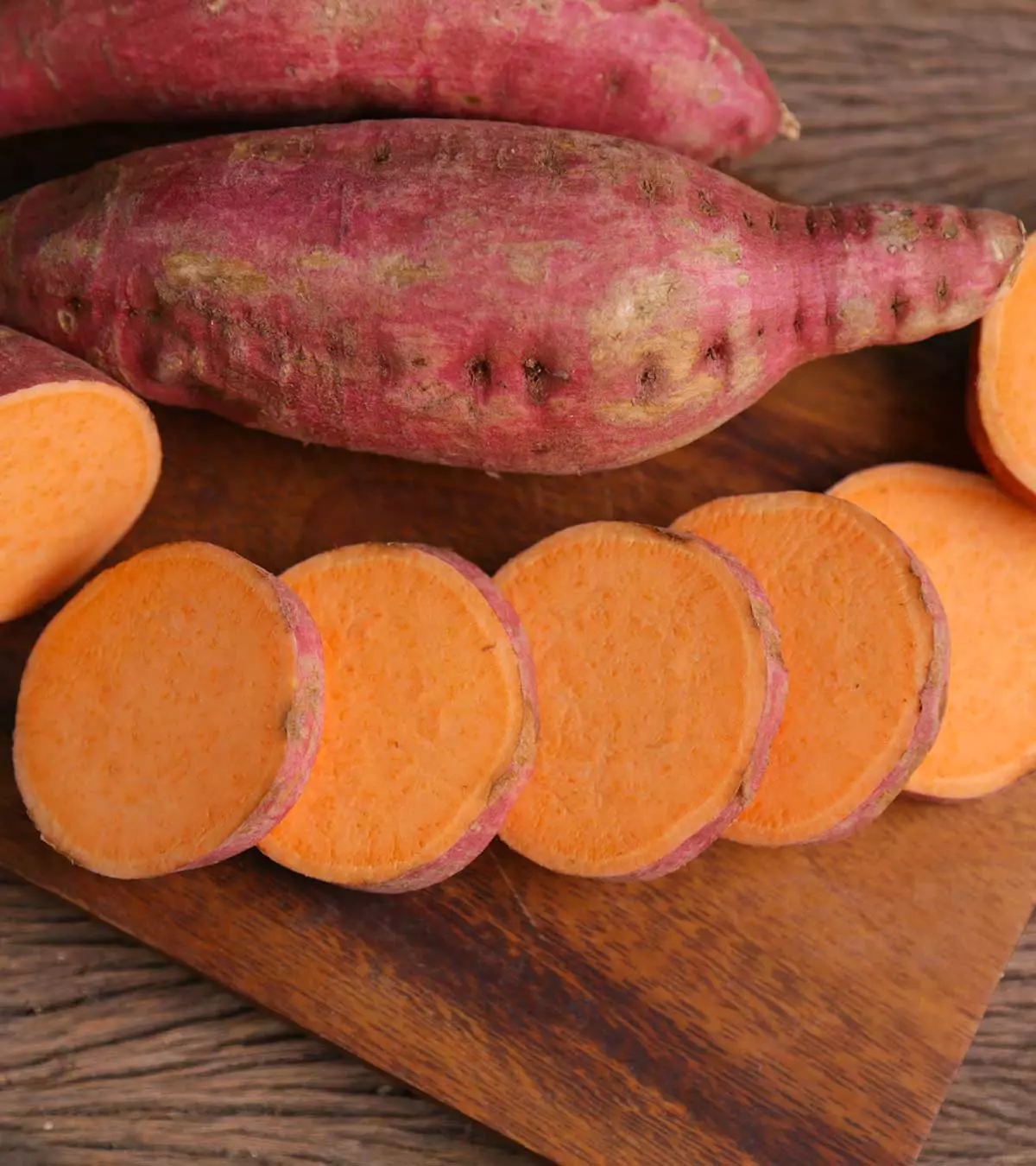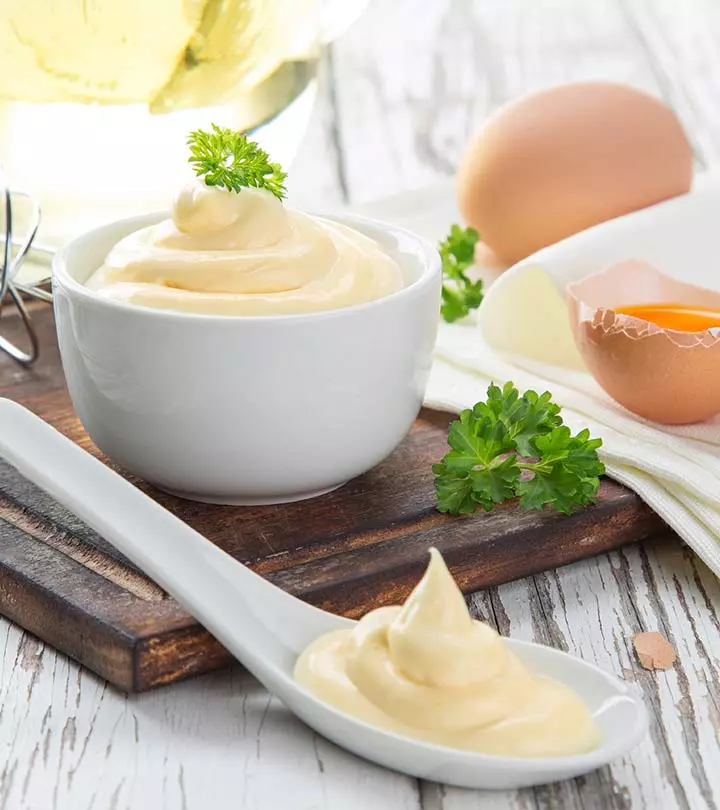
Image: Midjourney/ MomJunction Design Team
If you are confused about introducing yogurt into your infant’s diet, finding the right yogurt recipes for your baby will resolve this issue. Yogurt is not only delicious but also packed with essential nutrients such as calcium and probiotics that support your baby’s growth and digestive health.
Many parents are apprehensive about giving yogurt to their babies because of the pediatricians’ general rule of “no dairy in the first year.” However, according to an article published in Pediatrics, it is safe to introduce yogurt in your baby’s diet by as early as six months (1).
Any milk other than breastmilk is generally not recommended during this period because milk protein is difficult for babies to digest. However, the milk protein in yogurt is broken into simpler forms by the bacteria present in it. This makes it good for health and an easily digestible source of protein and calcium.
Read this post for some safe ways to include yogurt in your baby’s diet.
Key Pointers
- Yogurt helps improve digestion by neutralizing acidity and managing diarrhea.
- Yogurt can improve child’s immunity and helps prevent dysentery, inflammation, and other stomach infections.
- Cherry yogurt, banana and apple yogurt, pear and yogurt, etc., are interesting yogurt recipes for babies.
Benefits Of Yogurt For Babies
Before including yogurt in your child’s diet, make sure you have a sound knowledge of its benefits
. Here are some health benefits that yogurt can provide for your child.
1. Digestion:
The high levels of protein, calcium and other active cultures in protein aid in the smooth functioning of the digestive system. It contains lactobacillus, a bacterium that acts as a probiotic and balances the intestinal tract. It also neutralizes acidity in the stomach, reducing irritation and relieves diarrhea in babies. Streptococcus thermophilus bacteria present in yogurt also reduces abdominal cramps and flatulence.
2. Immune System:
Getting yogurt for the baby is the best thing you can do for their good health. The lactic acid present in yogurt will boost your baby’s immune system and the body’s overall defense mechanism. A regular consumption of yogurt by your baby will kill the bacteria that cause infections, inflammation, diarrhea, and dysentery.
3. Source Of Essentials Nutrients:
Yogurt will also supply your baby with essential nutrients to your growing baby. It contains nutrients like vitamin A, B, C, D, E, calcium, zinc, potassium, sodium, zinc, and phosphorus. These nutrients will aid your child’s bone health and overall development.
4. Treats Insomnia:
One of the most common issues infants face is insomnia, with many children between 4-12 months needing 12 hours of sleep for healthy development. However, according to a CDC report, approximately 34.5% of children in this age group fail to meet this sleep requirement. B complex vitamins and tryptophan stimulate the production of serotonin, a neurotransmitter regulating sleep. You can reduce insomnia in your child by regularly serving yogurt to him. You can also massage yogurt on your baby’s forehead to induce sleep.
 Did you know?
Did you know?10 Yogurt Recipes For Your Baby
To make homemade meals easier and fun, we have come up with ten best yogurt recipes for babies that you can serve to your baby aged six months and above.
1. Sweet Potato and Apple Yogurt:

You Will Need:
- 1 organic apple peeled and cut into pieces
- 1/2 sweet potato
- baked and cut into pieces 6 oz.
- organic whole milk yogurt
How To:
Combine apples and sweet potato in a food processor and blend until smooth. Add the yogurt and blend for a few minutes. This recipe is loaded with vitamin C and antioxidants. Apart from being healthy, this is a great snack for your little one after they wake up from their little afternoon nap.
2. Cherry Yogurt:
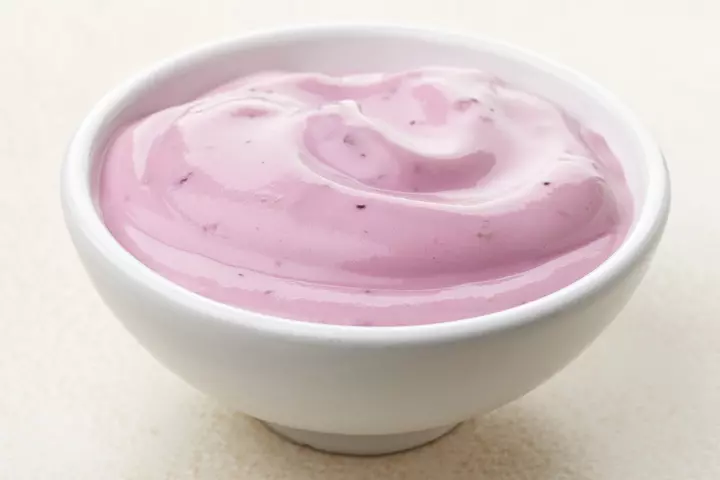
You Will Need:
- ½ cup cherry
- 2/3 cup yogurt
How To:
Deseed the cherries, puree and then sieve to remove the skin. Combine it with yogurt and serve to your child. The sweetness of this dish makes it a healthy dessert for your little one.
 Quick fact
Quick fact3. Banana And Apple Yogurt:
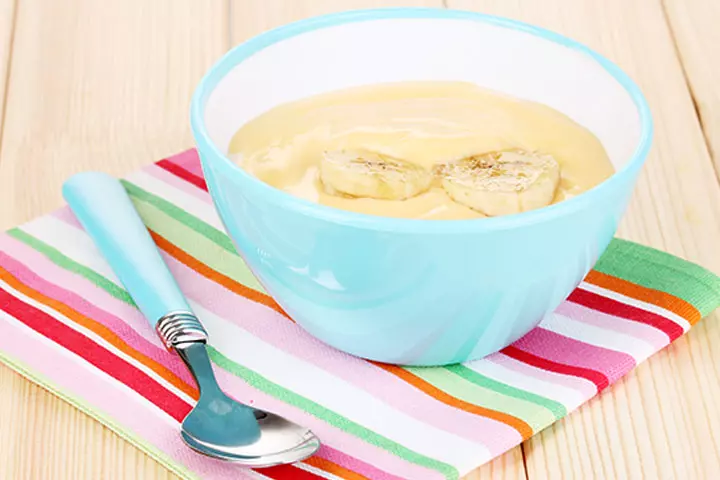
You Will Need:
- ½ banana
- 2 tablespoons apple sauce
- 2 tablespoons of Greek yogurt
How To:
Mash banana or puree it. Then add the applesauce and yogurt. Mix well and serve.
4. Yogurt Punch:
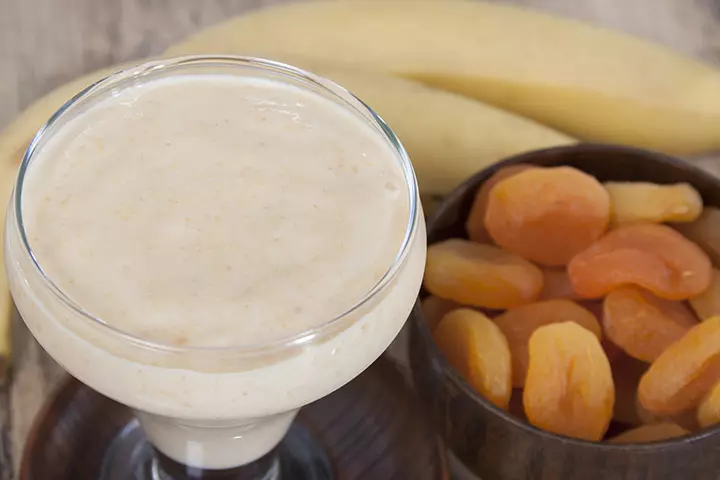
You Will Need:
- 4 chopped dried apricots
- 3 tbsp. water
- 2 tbsp. yogurt
- 1 medium sized ripe banana
How To:
Take a saucepan and add apricots into it. Simmer over low heat for 2 to 3 minutes. Blend the apricot together with banana and yogurt and then serve.
5. Pear And Yoghurt:
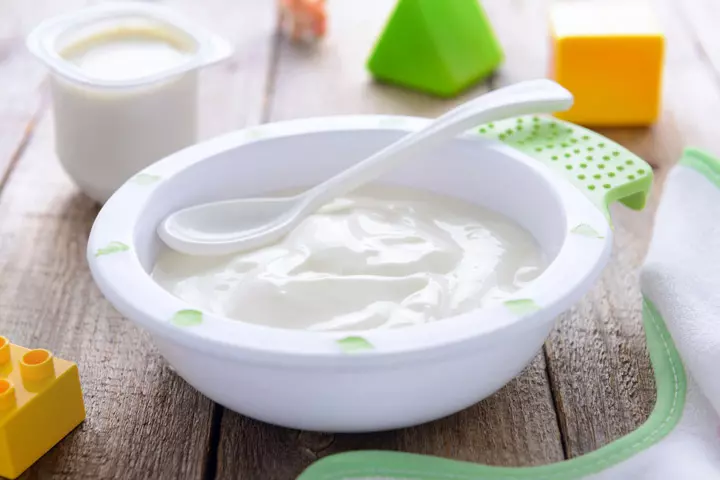
You Will Need:
- 1 pear, peeled cored and sliced thinly
- 1/2 cup water
- 1 cup full fat yogurt
How To:
In a saucepan, bring pear and water to boil. Then simmer for 10 minutes until the pear is soft. Puree the pear with the help of a blender and leave it aside to cool. Then combine the stewed pear with yogurt and serve.
6. Strawberry And Mango Yogurt:

You Will Need:
- 4 strawberries chopped
- 1/3 cup mango peeled and chopped
- 1/2 cup of yogurt
How To:
Steam the fruits lightly until they soften. Then blend the fruit in a blender. Mix the fruit with the yogurt and serve. This is one of the easiest ways to make smoothies for your toddler. You may add more berries to the blender for added flavor and nutrition.
7. Berry Delight:
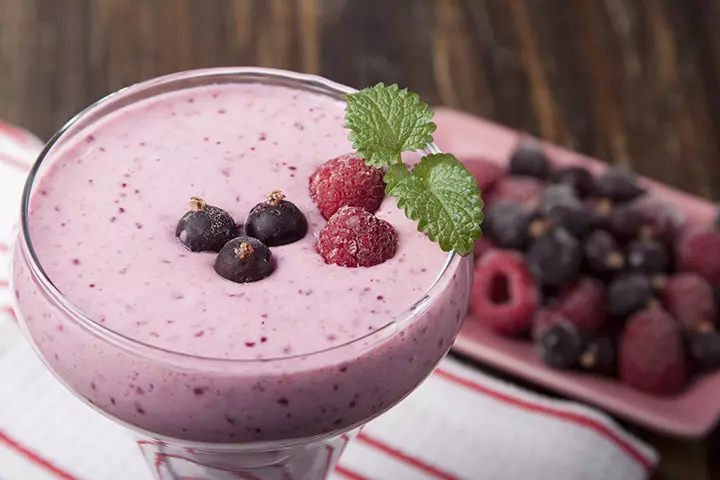
You Will Need:
- 1-1/2 cups of full-fat plain yogurt
- 1/2 cup raspberries, strawberries, and blueberries
- 1/2 banana, sliced
- 1 tbsp. maple syrup
How To:
Blend all the berries together with yogurt and maple syrup until smooth. Serve the yogurt topped with maple syrup. You can refrigerate the yogurt in an airtight container for about 3 days.
 Did you know?
Did you know?8. Mango Yogurt:

You Will Need:
- 1 ripe mango peeled and sliced
- ½ cup of yogurt
How To:
Puree the mango in a blender and then mix with the yogurt. Top the yogurt with mango puree and serve.
9. Banana And Blueberry Yogurt:
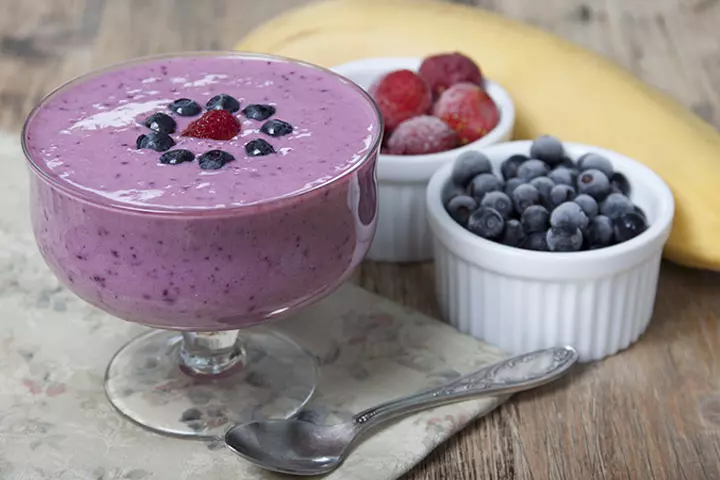
You Will Need:
- 1 cup of yogurt
- 1 banana
- 1/2 cup of blueberries
How To:
Slice the bananas and wash the blueberries. Then puree both fruits together. Add the yogurt and puree again. This is a healthy breakfast idea that is super easy to make and extremely delicious.
10. Blueberry And Maple Syrup Yogurt:
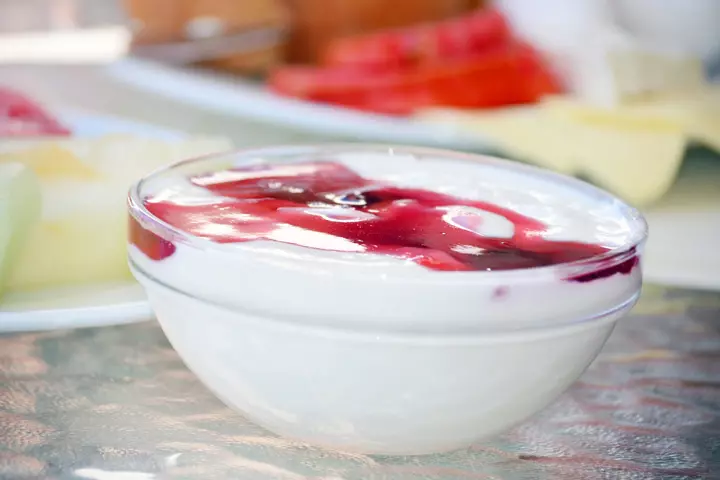
You Will Need:
- 1 ounce blueberry
- 4 ounces of plain Greek yogurt
- ½ teaspoon maple syrup
How To:
Puree the blueberries and then add the yogurt and maple syrup and whisk well. Serve cold.
Tips:
Do not give low-fat dairy products to your kids as your baby needs fat for full brain development.
If your child has exhibited signs of lactose intolerance, then you should avoid giving dairy products to him until he is one-year-old.
Alternatively, you can try making breast milk yogurt, just like a mom did for her exclusively breastfed baby. She says, “I have been making our yogurt at home for years now. To me, it seems natural to make yogurt from breast milk rather than giving him cow’s milk yogurt. We fed it to the baby, and guess what!? He loved it (i).”
Do not sweeten the yogurt with honey for babies younger than 12 months. Honey can cause botulism in babies (2).
Do not make yogurt the main feature of your child’s diet, especially in the first year.
Wait for at least three days before moving to another food after introducing yogurt. This way, your baby’s body will get enough time to adjust. Do not serve flavored yogurt to your baby.
Plain yogurt is perfect as it does not contain added sugar. Purchase plain yogurt and then add fruit pulps to sweeten it.
If your baby develops a rash around his mouth or has diarrhea after eating yogurt, then check with this pediatrician. These may be signs of allergic reactions.
While adding pureed fruit to yogurt choose a fruit that your baby has tasted and tolerated before.
Frequently Asked Questions
1. Can my baby eat yogurt every day?
Yogurt is a rich source of protein, fat, vitamins, and minerals. Hence, it can be a part of a baby’s daily diet. However, if your baby is allergic to milk and milk products, you may avoid it.
2. Which yogurt is best for babies?
Babies may consume Greek yogurt and full-fat yogurt. However, ensure you feed them pasteurized yogurts. Also, check the nutritional label to avoid yogurts with artificial sweeteners and harmful additives.
3. Does yogurt help relieve constipation in babies?
A few studies have found that yogurt may reduce the symptoms of constipation in adults. However, it is unknown whether yogurt can cure constipation in babies. Yogurt is rich in many gut-friendly bacteria that improve gut health and increase stool frequency when consumed (3).
4. Does yogurt make babies gassy?
Hannah Whittaker, a pediatric and pregnancy dietitian from Liverpool, England, says, “Cow milk yogurt contains lactose which is a fermentable carbohydrate. This can increase gas. I would advise moms to be aware that if gas increases and the baby shows symptoms such as loose, mucous stools or irritability, respiratory or skin reaction, then it may be that the baby has a cow milk protein allergy. Dietitian support would be required at this time to diagnose the condition.”
5. How do I introduce yogurt to my baby?
“Give one to two tablespoons of yogurt at a time and build up as the baby enjoys. I would also advise going for plain or greek yogurt for babies instead of flavored ones, as they may contain high levels of sugar that babies do not require in their diet,” opines Whittaker.
Yogurt for babies could be safe and introduced once they reach one year. Yogurt could also help deal with your baby’s digestive issues and provide them with several nutritional benefits. Include this dairy product into your baby’s meal along with other vegetables such as sweet potatoes. You may also customize your yogurt preparations with maple syrup and fruits such as blueberries, pears, mangoes, or bananas to serve delicious desserts for your little one. Also, don’t be surprised if you find them asking for more!
Infographic: Potential Benefits Of Feeding Yogurt To Babies
Yogurt is a nutritious dairy product that can introduce a baby to a new flavor and texture. Besides, it can offer babies several essential nutrients that can support their growth and development and overall health in the long run. Read the infographic below to learn why yogurt can be a good addition to your baby’s weaning diet.
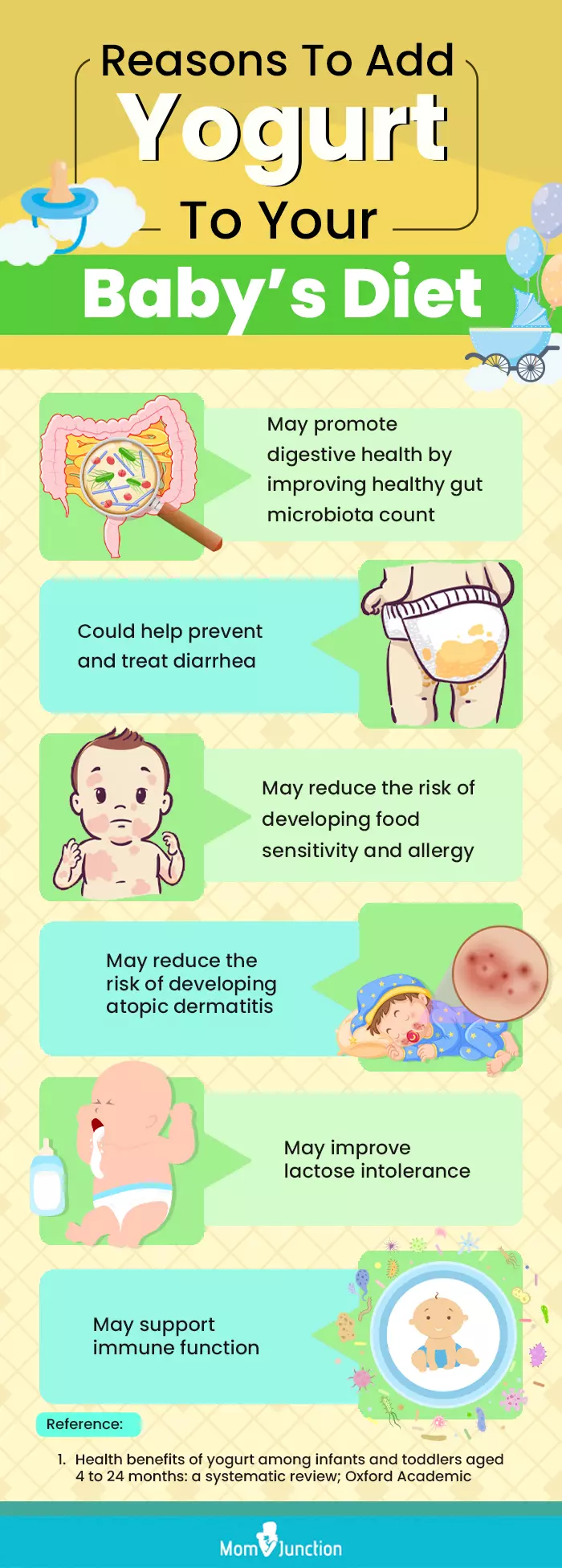
Illustration: Momjunction Design Team
Illustration: Yummilicious Yogurt For Babies
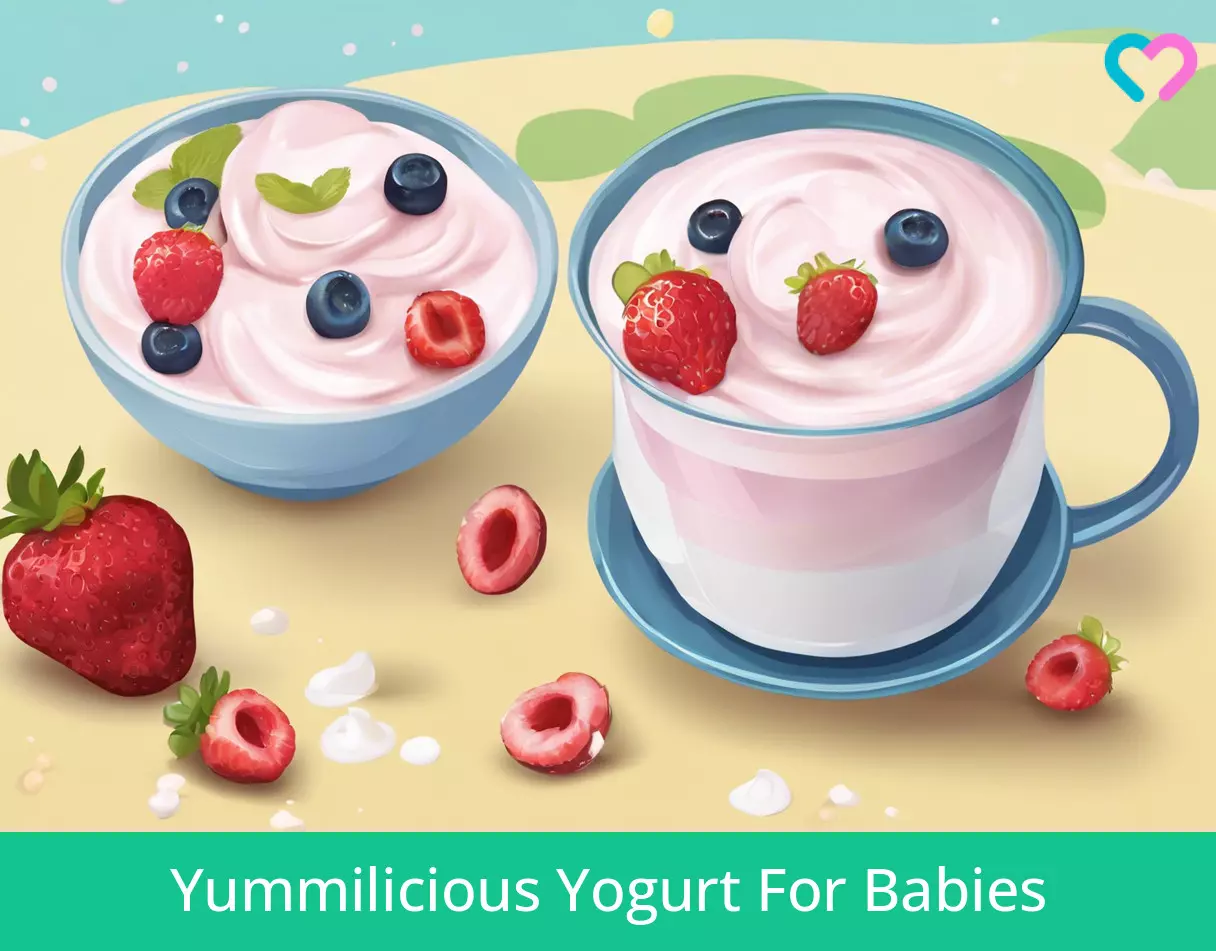
Image: Stable Diffusion/MomJunction Design Team
Delight your little one with 8 delicious and sugar-free fruit yogurt recipes! Watch this video for mouthwatering recipes that are perfect for babies and toddlers aged 6 months and up.
Personal Experience: Source
MomJunction articles include first-hand experiences to provide you with better insights through real-life narratives. Here are the sources of personal accounts referenced in this article.
i. Doing: breast milk yogurt.https://doingdomestic.wordpress.com/2012/06/08/doing-breast-milk-yogurt/
References
- Lyrad K. Riley et al.; (2018); Nutrition in Toddlers.
https://www.aafp.org/pubs/afp/issues/2018/0815/p227.html - Botulism Prevention.
https://www.cdc.gov/botulism/prevention/ - Mojgan Mirghafourvand et al., The Effect of Probiotic Yogurt on Constipation in Pregnant Women: A Randomized Controlled Clinical Trial; National Library of Medicine.
https://www.ncbi.nlm.nih.gov/pmc/articles/PMC5294450/ - What Kind of Yogurt Should You Feed Your Kids?
https://health.choc.org/kind-yogurt-feeding-kids/ - Forestell C.A.; Flavor Perception and Preference Development in Human Infants; Karger
https://www.karger.com/Article/Fulltext/478759
Community Experiences
Join the conversation and become a part of our nurturing community! Share your stories, experiences, and insights to connect with fellow parents.
Read full bio of Seeemaa Budhraja
- Hannah Whittaker is an expert pregnancy and pediatric dietitian with nearly 20 years of experience, the last seven years as a registered dietitian. She manages her private practice Bump2baby Nutrition in the UK, having done her graduation in community nutrition and dietetics from Liverpool John Moores University & University of Chester respectively.
 Hannah Whittaker is an expert pregnancy and pediatric dietitian with nearly 20 years of experience, the last seven years as a registered dietitian. She manages her private practice Bump2baby Nutrition in the UK, having done her graduation in community nutrition and dietetics from Liverpool John Moores University & University of Chester respectively.
Hannah Whittaker is an expert pregnancy and pediatric dietitian with nearly 20 years of experience, the last seven years as a registered dietitian. She manages her private practice Bump2baby Nutrition in the UK, having done her graduation in community nutrition and dietetics from Liverpool John Moores University & University of Chester respectively.
Read full bio of Jessica Albert
Read full bio of Swati Patwal
Read full bio of Vidya Tadapatri










